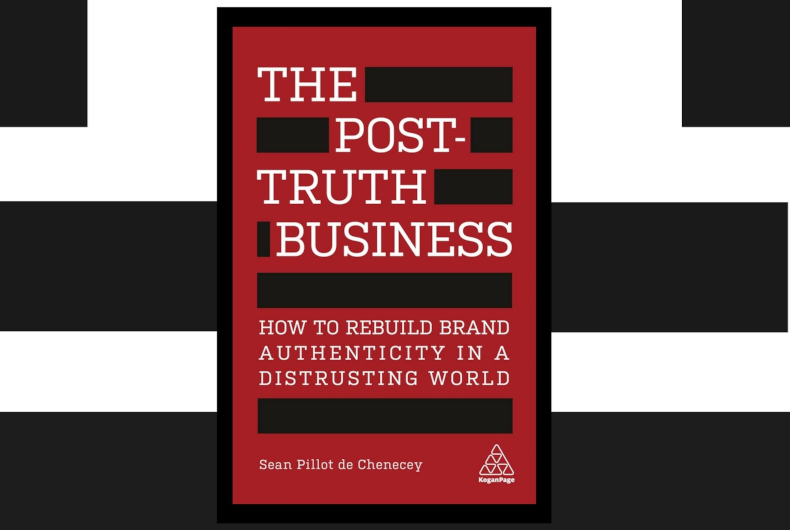 The importance of trust, transparency, data privacy and the lack thereof, not only in the marketing and brand ecosystem but in economies at large, has been dominating conversations in the last few years.
The importance of trust, transparency, data privacy and the lack thereof, not only in the marketing and brand ecosystem but in economies at large, has been dominating conversations in the last few years.
While much has been said and written on the subject, Sean Pillot de Chenecey, a marketing expert who for over 20 years has combined brand consultancy with ethnographic activity and trend research around the world, took notice of the fact that no one had yet joined the dots between the series of key trends and issues impacting organizations, brands and marketing including truth, trust, privacy, transparency, ethics and authenticity.
And this was the starting point that led him to publish a book on how to rebuild brand authenticity in a distrusting world. Titled ‘The Post-Truth Business’, the book is aimed at a global audience. Published in October 2018 in English, it is now being translated into several languages, with “the business traveler readying for a long flight” being the prime target.
Elaborating on the thought process behind the book title, Mr de Chenecey recalls, “It struck me that the famous Time magazine cover ‘Is Truth Dead?’ neatly linked with the most fundamental of brand issues –– that trust is basis of all brand values.”
From the genesis of the idea, the whole process took him about eight months, involving “extremely detailed desk research” and interviews with relevant experts in a range of locations around the world, to complete the book.
In his own words, Mr de Chenecey has written a ‘Post-Truth Brand Manifesto’, and the key takeaways, according to him, are:
Be Authentic: Truly authentic companies that want to earn and keep our trust have to ‘live it like they say it’ and dovetail brand intentions with the consumer reality. Because from a customer point of view, behavior (including brand activism) is what builds brand credibility and corporate integrity, not merely the advertising stories that a brand may choose to tell.
Be Transparent: For brands to thrive, business leaders need to find a way to regain and retain the confidence of employees. This starts with transparency. This is a business-wide issue, involving every facet of the organization.
Respect Privacy: It’s hard to overstate the seriousness of this subject, and the levels of antipathy engendered towards businesses that are seen to be profiting from ‘surveillance capitalism’.
Demonstrate Empathy: More and more people want to find ‘meaning and purpose’ in their working lives, and who are attracted to culturally aware, ‘good neighbor’ companies that reflect their viewpoints as ‘social citizens’.
Be Trustworthy: It’s no coincidence when companies which are trusted most tend to be legacy brands which have clearly demonstrated their ‘good business’ and/or ‘reliable product’ credentials, or indeed are those with transparency built-in to the core of their business model.
Mr de Chenecey candidly admits that the reader in him wanted more on the world of dynamic innovation. “Which just happens to be the theme for my next book,” he states.




